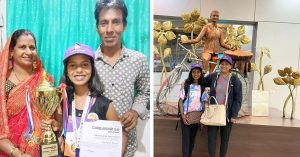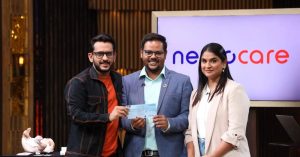Startup’s Innovation Could Help Millions Get Access to Better Brain Health At Home
Ivory, a pioneering age-tech startup founded by Issac John and Rahul Krishnan, aims to redefine the ageing experience by focusing on better brain health, through neuroscience-backed assessments, interactive games, and personalised solutions.
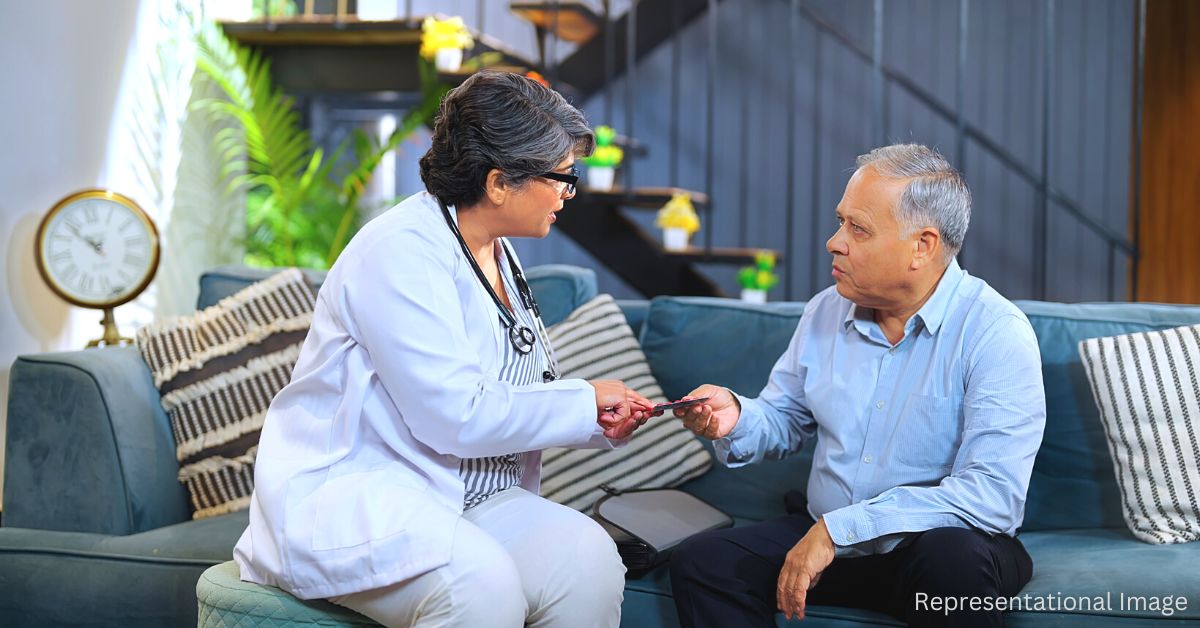
Isaac John’s father was first diagnosed with Parkinson’s disease in 2016. At the time, Issac was on a brief sabbatical from his corporate life in Bengaluru while his father was working in Vapi, Gujarat. Witnessing his father struggle with this neurodegenerative condition wasn’t easy.
Speaking to The Better India, Issac recalls, “It began with involuntary shaking of his hands without anyone taking note of it. We waited for months before seeking medical input. He was put on a medicine called Syndopa that continued throughout the rest of his life along with certain vitamin supplements. While he worked for another year after his first diagnosis, driving a car was one of the first things he had to give up, and subsequently, his job as well.”
After some time, Issac’s father was compelled to move to a small town in Kerala and live with their joint family. Since then, they had to engage in ‘steady management’ of his condition.
“We received little guidance on what diet or lifestyle would help him cope better. Living in a small town in Kerala, access to high-quality neurological experts was also limited. Our family and I accepted the status quo and slowly he withdrew from other social activities. He wanted to resume work in some way, but the shaking of the hands transferred to the legs as well in a couple of years, and he had to have someone around for mobility around the house,” he recalls.
Beyond a point, the medication did little to improve his father’s quality of life; seeing it deteriorate like that despite the medication had a profound impact on Isaac. Tragically, he passed away in 2020 amid the COVID-19 pandemic.
Meanwhile, Rahul Krishnan, who comes from a large joint family in Ernakulam, Kerala, also witnessed firsthand the struggles of loneliness and isolation among his older relatives, particularly those dealing with neurodegenerative conditions. With the added strain of the pandemic, there was news every day of someone’s cognitive health in the family deteriorating.
Speaking to The Better India, Rahul notes, “I come from a large joint family in Kerala. Like me, many of my cousins and friends ventured away from home in pursuit of better educational and career prospects. With the rise of nuclear families, meeting elders became a yearly affair at best. But witnessing the rapid ageing and forgetfulness of our loved ones has always made me wonder why there are no tools for early detection of memory decline.”
“While I encouraged my father to play sudoku and solve puzzle books to keep his mind sharp and active, I recognised a latent concern in almost every family like mine. The realisation that there is a significant gap in awareness and access to resources aimed at understanding and arresting cognitive decline served as a key driving force behind the inception of ‘Ivory’,” he adds.
After meeting each other for the first time in July 2022 during a residency programme for aspiring entrepreneurs run by Antler, an early-stage venture capitalist (VC) firm, Issac and Rahul would come together to establish ‘Ivory’.
Founded in October 2022, this Mumbai-based ‘age-tech’ startup is working towards redefining “the ageing experience” by focusing on “better brain health through neuroscience-backed assessments, interactive games, and personalised solutions.”
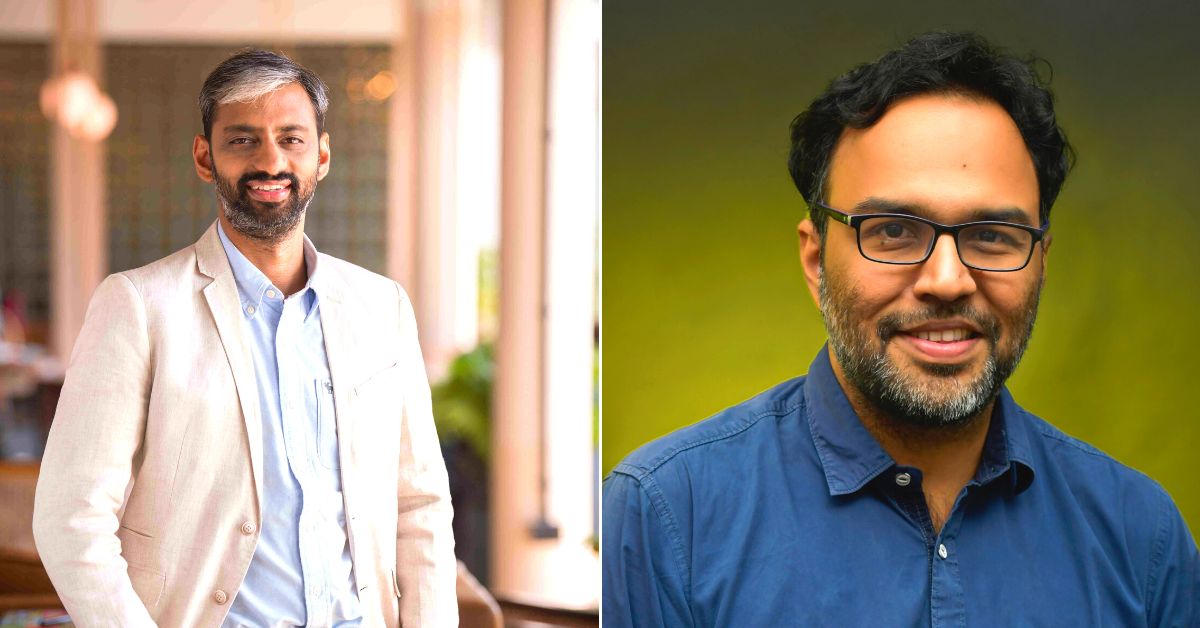
Finding common ground
Rahul and Issac hail from different small towns in Kerala. Their shared experience of being away in metropolitan cities for their careers while their parents stayed back in Kerala became a key reason for them to bond over the problems of the elderly that led to Ivory’s founding.
“Our starting point was to build something that would help parents feel less isolated and lonely as they stayed away from their children. During the course of our research, we understood that loneliness and isolation increase risks of neurodegeneration by over 50%, especially in collectivist societies like in India,” says Issac.
“This made us look into this space more closely. The more we spoke to people, we realised losing memory was a widespread concern that many people vocalised but had little direction on what to do about it. That’s how we zeroed in on the pain point of cognitive decline, which when not arrested early can quickly lead to dementia,” he adds.
“Just like how natural ivory embodies resilience, durability, and timeless elegance, our startup empowers seniors to lead fulfilling lives in their later years. It also is a homage to Kerala, our home state, where majestic elephants are treasured as part of our rich heritage,” says Rahul.
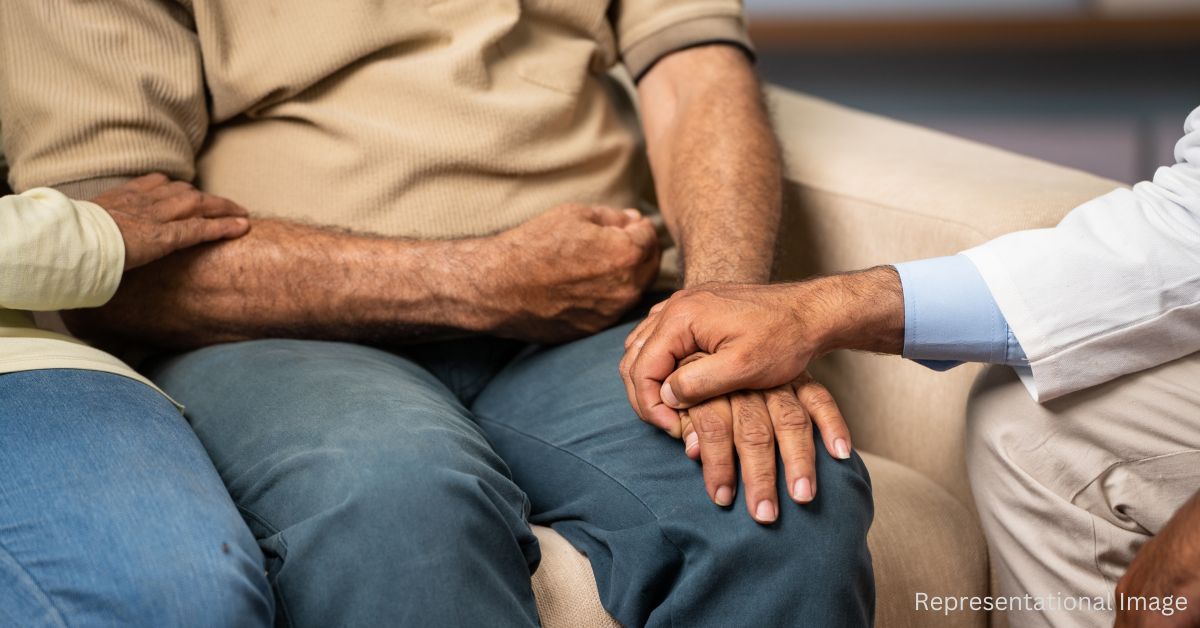
The scale of the problem
According to a September 2023 report in The Hindu, “Estimates based on a recent multi-centric study reveal a dementia prevalence rate of 7.4% among those aged 60 years and above, translating to nearly 9 lakh Indians currently living with dementia.”
The report goes on to add, “From an estimated 88 lakh in 2016, the prevalence of dementia is projected to increase to 1.7 crore by 2036. The study titled ‘Prevalence of dementia in India: National and State estimates from a nationwide study’ was published in July this year [2023] in Alzheimer’s and Dementia, the journal of the Alzheimer’s Association.”
According to experts at Ivory, “Latest research estimates show that one person in India faces the risk of dementia every 20 seconds. Contributing factors such as loneliness, increased nuclear families and sedentary lifestyles have added to the problem.”
As per their research, “Latest reports show that cases have increased from an estimated 5.3 million in 2020 to 8.8 million in 2023. Furthermore, adults aged 50 to 70, even with mild cognitive impairment, face a 1 in 3 chance of progressing to dementia within five years, underscoring the urgent need for heightened dialogue and action in neuro health.”
Speaking on the subject, Issac, co-founder and CEO at Ivory, said, “Historically, there has been insufficient attention and understanding of dementia, especially in India. The lack of symptom identification tools combined with scant access to high-quality neurological advice at the right time makes this a pressing problem for every Indian household with an ageing parent. Urban seniors, particularly those living alone, face challenges in monitoring their cognitive health, exacerbated by [COVID-19] pandemic-induced isolation.”
Rahul, co-founder and chief product officer, Ivory, goes on to add, “At Ivory, we’re developing a pioneering platform dedicated to the cognitive wellness of seniors and cultivating healthy brain habits. We offer a diverse range of interactive content, social games, neuroscience-backed assessments, and comprehensive wellness programmes aimed at enhancing cognitive well-being and mitigating the risk of brain-related ailments such as dementia.”
Getting to this point, however, hasn’t been easy. As Issac recalls, “When we first met, there were few ready reckoners and research available for companies who are building in age-tech, particularly in India, so it was not possible to take any existing learnings and apply them to the needs of seniors. That meant that we had to experiment with multiple product concepts parallelly before zeroing down on what would find mass pain-point resonance.”
Entrepreneurship in the field of brain health is still at a nascent stage. “As we built these learnings, we also realised that the VC ecosystem was still warming up to this sector,” he says.
“While in the last six months, many funds have stepped forward to support AgeTech companies, 18 months ago, we had to build conviction about the opportunity of the AgeTech space in the venture ecosystem,” he adds. Suffice it to say that Ivory successfully raised $500,000 (Rs 4.13 crore) in a funding round led by Capital A, an early-stage VC fund, in February 2024.
“With this fundraiser, we aim to bridge these gaps by offering a tech-driven platform that makes clinical tools and expertise for better brain health accessible to millions,” says Issac.
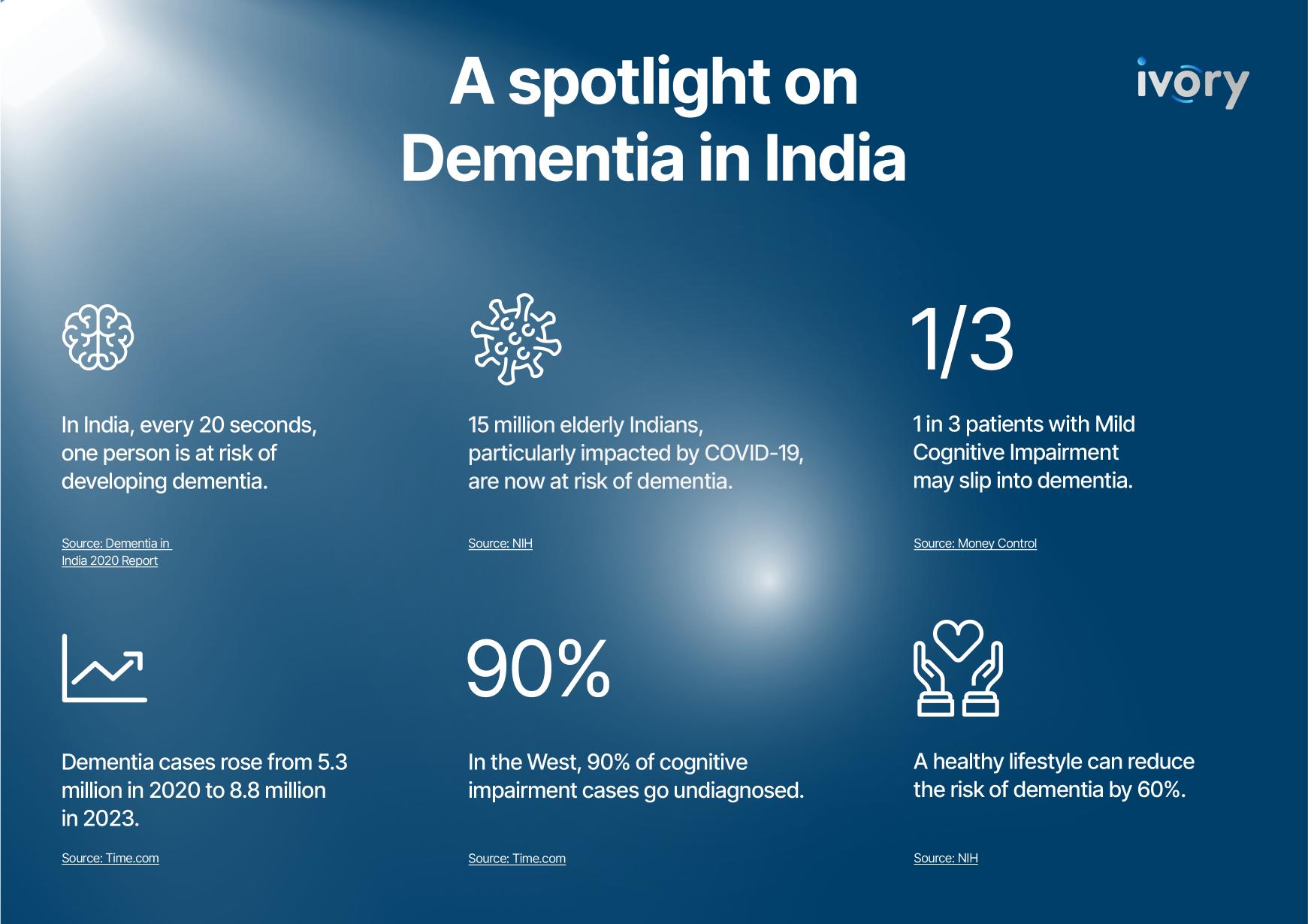
Helping seniors navigate brain health
Dr Sumiti Saharan, a neuroscientist with over 15 years of experience in neurodegenerative disorders and dementia research, says, “By 2050, one in five individuals will be elderly in India. The urgency for innovative solutions for dementia detection and management has become undeniable. Evidence-based solutions like Ivory offer a scalable and accessible mechanism for redefining the dementia care journey and empowering the elderly to live a healthy life.”
So, how does Ivory help senior citizens navigate their brain health?
According to Rahul, “For the concerned users and their families who want to understand if their memory lapses are stress related or something which warrants more attention, Ivory provides the equivalent of your annual health checkup for your brain. This checkup is done through cognitive assessments and neuro-psychological evaluations, which help you profile your brain health status and potential cognitive impairment or dementia risk.”
“Towards this end, we’ve partnered with Cognifit — a scientifically validated and leading brain training and cognitive assessments company — to provide a starting point for tests. Their battery of tests have been developed with more than 20 years of inputs and research,” he adds.
But, as Issac goes on to explain, “A cognitive test is just one of the many inputs which go into assessing someone’s cognitive decline, as every user is unique in terms of their cultural and sociological background. These assessments provide a cognitive report across various skills, and post that, more focussed assessments are carried out. Hence, every report that goes to the user is combined with a human interaction with a neuro counsellor to give a holistic risk assessment. Neuropsychologists then use these reports in consonance with their subjective examination of the patient to propose alternative lifestyle-based interventions.”
“Every neuropsychologist does employ a third-party assessment mechanism like a Mini-Mental State Examination (MMSE), or a Montreal Cognitive Assessment (MoCA), or an ICMR (Indian Council of Medical Research)-NCTB (Neuro Cognitive Tool Box), or Addenbrooke’s Cognitive Examination (ACE)-III test. It is the combination of the test used along with a subjective interpretation and continuous tracking that makes for a more definitive assessment,” he adds.
Following these cognitive and neuro-psychological assessments, counsellors hired by the startup suggest the next course of action which could include further clinical assessments.
As Rahul notes, “For proactive users, who would just want to ensure they are keeping themselves mentally active and take a preventive approach towards brain health, we have our app which offers daily quizzes, brain games, and daily tips for an active lifestyle leading to reduced impairment risk. We have also developed a personalised brain workout daily, calibrated to improve the skills they lag in. The daily workout currently consists of 2 games and a mini-assessment to measure progress. Going ahead we will be developing our proprietary workouts as we understand more about these users.”
“Depending on how the user performs, either the difficulty level or the games are then changed on an ongoing basis. The user will also get charts of progress that they can see across the skills he is being tested for,” he adds. A good starting point for this is the current cognitive age test that they have live that can be accessed here on mobile. Meanwhile, the daily tips they offer are live on their social media pages, which can be accessed here.
“There are close to 50 different games with different levels of difficulty that will also be live on our app. These test different skills, such as auditory skills, hand-eye coordination, visual reasoning, focus, planning, and short-term memory, among 23 different skills. The app is currently in its beta version slated for further testing but contains various games ” notes Rahul.
“For example, we have a game which tests processing speed, estimation, and spatial perception. Apart from these cognitive games, Ivory also has a gamified quizzing experience in version 1 across topics of interest for our target group (TG) apart from ongoing brain-teasers that we will soon drop on the app,” he adds.
As Jwala Narayanan, a consulting neuropsychologist at Annaswamy Mudaliar Hospital and Manipal Hospital, notes, “Currently, we understand that dementia risks are diverse, making prevention a crucial strategy in the battle against it. Given the considerable challenges of behaviour change, Ivory’s role in the healthcare ecosystem becomes essential, harnessing technology’s advantages to inspire a positive shift in people’s habits”.
Looking ahead
As Issac notes, “We see Ivory with a deep-rooted foundation in making better brain health accessible for the majority of Indians. One of the recurring themes coming from every neurologist or neuropsychologist who treats dementia patients is ‘We are 10-15 years late’, and Ivory seeks to bridge that gap. The new technologies in detection, and recovery and rehab of Dementia patients that will come in the next few years is what will define Ivory’s journey.”
In the medium term, however, Rahul says that Ivory intends to bring together “the power of high-quality cognitive assessments” and make them accessible for Indians to take better care of their brain health. As he goes on to add, “Timely response to cognitive decline can improve the quality of life as people age. Our objective is to make this a reality for every Indian household with an ageing parent.”
(Ivory’s beta version of the app is available on the Google Play Store.)
(Edited by Pranita Bhat; Images courtesy Ivory, Shutterstock/WESTOCK PRODUCTIONS and Shutterstock/Raushan_Films)
Additional Source:
‘India needs to gear up for the emerging dementia epidemic, say experts’ by Afshan Yasmeen for The Hindu, Published on 8 September 2023
If you found our stories insightful, informative, or even just enjoyable, we invite you to consider making a voluntary payment to support the work we do at The Better India. Your contribution helps us continue producing quality content that educates, inspires, and drives positive change.
Choose one of the payment options below for your contribution-
By paying for the stories you value, you directly contribute to sustaining our efforts focused on making a difference in the world. Together, let's ensure that impactful stories continue to be told and shared, enriching lives and communities alike.
Thank you for your support. Here are some frequently asked questions you might find helpful to know why you are contributing?






